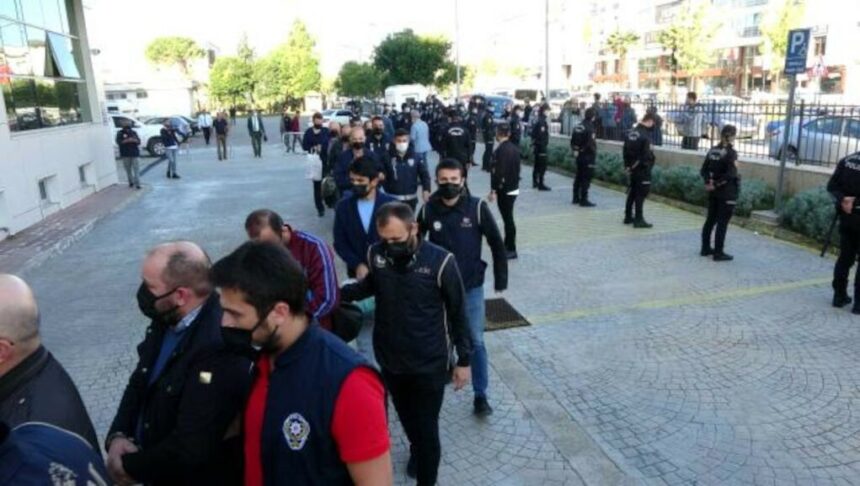According to local media reports, Turkish authorities have ordered the detention of 113 individuals in the past week due to their alleged connections to the Gülen movement. The interior minister, Ali Yerlikaya, announced on Monday that 74 people were detained across 27 provinces. These detainees were involved in the movement’s infiltration of the police and military.
The individuals were identified through the use of ByLock, a mobile messaging application, and evidence based on payphone records. The following day, eight people, including former military and police officers, as well as doctors who were dismissed from their jobs after a 2016 coup attempt, were detained in Izmir on similar charges. They were accused of being affiliated with the Gülen movement and were detained while allegedly attempting to leave Turkey.
On Wednesday, the Ankara Chief Public Prosecutor’s Office issued detention warrants for seven people, including a military officer and a police officer, for their alleged involvement in the movement’s infiltration of the military. Additionally, 14 more people were detained in Ankara on the same day, accused of being affiliated with the movement and staying in apartments linked to the movement’s network.
Furthermore, on Thursday, detention warrants were issued for 10 people in Izmir, and six of the suspects were detained. They were accused of depositing money at a Gülen-linked bank and using ByLock to communicate.
President Recep Tayyip Erdoğan has targeted followers of the Gülen movement since corruption investigations in 2013 implicated him, his family members, and his inner circle. Erdoğan dismissed the investigations as a Gülenist coup and designated the movement as a terrorist organization. He intensified the crackdown following the abortive putsch in 2016.
Despite Gülen and the movement denying involvement in the coup attempt or any terrorist activity, thousands have been jailed, and many others have fled Turkey to avoid government crackdown.
ByLock, considered a secret tool of communication among Gülen movement supporters, has been subject to scrutiny by Turkish authorities. However, a European Court of Human Rights decision stated that its use cannot be considered as evidence.
Turkish authorities routinely rely on witness statements as evidence to identify and prosecute members of the Gülen movement. There have been reports of alleged use of torture and ill-treatment in custody to coerce detainees into becoming informants and incriminating others.
Since the 2016 coup attempt, a total of 705,172 people have been investigated on terrorism or coup-related charges due to their alleged links to the movement. Currently, 13,251 people are in prison in pre-trial detention or have been convicted of terrorism in Gülen-linked trials. Between June 2023 and June 2024, Turkish authorities carried out a total of 5,543 police operations and arrested 1,595 people linked to the movement.



